Materialien
In diesem Bereich stellen wir Materialien und Methoden wie Workshop-Konzepte, Übungen, Folien und Präsentationen, Hintergrundliteratur oder Videomaterial zur Verfügung.
Für den Anfang haben wir eine Seite mit Artikeln sowohl über “das Problem” als auch über “die Lösungen” zusammen gestellt, dazu einige unserer Präsentationen sowie ein paar Empfehlungen für Filme und Videos zum Thema “Planet Action” und zur Rolle, die Unternehmen dabei spielen können.
Menu
Videos
Dieser 35-minütige Dokumentarfilm “The Decade of Action” zeigt die Dimensionen des Themas Nachhaltigkeit auf und erklärt, warum Unternehmen jetzt mit vollem Einsatz tätig werden müssen, wenn wir unsere Klimaziele erreichen und unsere Welt so für unsere Kinder, Enkel und Urenkel bewahren wollen, wie wir sie heute kennen. Jetzt ist das Jahrzehnt. Wir sind die Generation.
In diesem prägnanten 8-minütigen Vortrag erklärt Harvard Business Professorin Rebecca Henderson ihre neue Version des Kapitalismus, in der Wirtschaft und Umwelt in Einklang gebracht werden, und wie jedes Unternehmen dieses Ziel erreichen kann.
Dieser herzerwärmende Film, produziert vom WWF und inspiriert durch die Netflix-Serie “Our Planet”, vermittelt eine klare, positive und emotionale Botschaft anhand von hochkarätigen Interviews und wunderbaren Naturaufnahmen: Unternehmen haben eine Aufgabe – zu einer stabilen Zukunft auf unserem Planeten beizutragen.
In diesem 32-minütigen Video nimmt der Thinktank RethinkX uns mit auf eine rasante Reise durch den Aufstieg und Fall von Zivilisationen und zeigt, wie fundamentale technologische Durchbrüche uns dorthin gebracht haben, wo wir heute stehen. Heute sehen wir weitere exponentielle technologische Veränderungen, die dazu führen werden, dass die Kosten in den Schlüsselbereichen Information, Energie, Lebensmittel, Transport und Materialien um das Zehnfache sinken, während die Produktionsprozesse 90% weniger Ressourcen verbrauchen und 10- bis 100-mal weniger Abfall produzieren. Wenn wir sie zu nutzen verstehen.
“Earthrise” von Youth Poet Laureate Amanda Gorman. “Es ist eine Hoffnung, die uns im Innersten anfleht, immer wieder aufzustehen für eine Erde, die es mehr als wert ist, dafür zu kämpfen.” Ein 4-minütiges Gedicht, das wunderschön zum engagierten Handeln JETZT aufruft.
Der “Pionier der Klimalösungen” Project Drawdown hat diese großartigen sechs Videos mit einer Länge von jeweils 10 bis 12 Minuten zusammengestellt, um sowohl für Expert*innen als auch für Neulinge verständlich und praktisch anwendbar aufzubereiten, was wir tun können und müssen, um diese Lösungen in die Umsetzung zu bringen.
Weiter Filme zum Thema, die wir sehr empfehlen können:
Netflix’ ‘David Attenborough: A Life On Our Planet’ wurde vom Forbes-Magazin als “die wichtigste Dokumentation des Jahres 2020” bezeichnet. Der Film bewegt sich mit wunderschönen Bildern durch die Jahrzehnte und markiert jede Etappe von Attenboroughs Karriere mit dem immer schlechter werdenden Zustand der natürlichen Welt. Der Prozentsatz der verbliebenen Wildtiere nimmt in den letzten dreißig Jahren dramatisch ab, während der kumulative Schaden sich immer weiter beschleunigt.
Glücklicherweise nimmt der Dokumentarfilm bald eine optimistischere Wendung, zeigt große Erfolge in der Renaturierung und im Umweltschutz aus und beginnt, sich nicht auf eine verbrannte, apokalyptische Zukunft zu konzentrieren, sondern auf eine wiederhergestellte Welt. Das eigentliche Ziel des Dokumentarfilms ist es, das Ausmaß des Problems aufzuzeigen, vor den möglichen Folgen zu warnen und schließlich ein Gefühl der Hoffnung zu vermitteln.
The Sustainability Secret ist eine bahnbrechende Umweltdokumentation in Spielfilmlänge, die den unerschrockenen Filmemacher Kip Andersen dabei begleitet, wie er die zerstörerischste Industrie aufdeckt, mit der unser Planet heute konfrontiert ist – und untersucht, warum die weltweit führenden Umweltorganisationen zu viel Angst haben, darüber zu sprechen.
Die Lösung liegt direkt unter unseren Füßen.” Dieser inspirierende Film auf Netflix hat Millionen von Menschen auf der ganzen Welt für die Möglichkeiten der regenerativen Landwirtschaft aufgeweckt – und jetzt ist es Zeit zu handeln.
Präsentiert von National Geographic, zeigt Leonardo DiCaprio auf einer Reise als Friedensbotschafter der Vereinten Nationen, die ihn auf fünf Kontinente und in die Arktis führt, um den Klimawandel aus erster Hand zu erleben. Er geht auf Expeditionen mit Wissenschaftlern, die die Realität des Klimawandels aufdecken, und trifft sich mit politischen Führern, die gegen Untätigkeit kämpfen. Mit beispiellosem Zugang zu Vordenkern auf der ganzen Welt sucht DiCaprio nach Hoffnung in einer steigenden Flut von katastrophalen Nachrichten.
2040 ist ein spannender und erhebender Film, der eine Welt in 20 Jahren zeigt, in der der Klimawandel gelöst ist. Beschrieben als “eine Übung in faktenbasiertem Träumen” reist der Film um die Welt, um zahlreiche Lösungen zu untersuchen, die zum Klimaschutz beitragen können, und sich vorzustellen, wie eine Zukunft aussehen würde, in der sie in großem Maßstab umgesetzt werden. Der Film zeigt nur Technologien und Ansätze, die entweder bereits verfügbar sind oder ein realistisches Potenzial haben, bis zum Jahr 2040 einen großen Beitrag zur Umkehrung des Klimawandels zu leisten.
Das Klima der Welt verändert sich. Anstatt das Schlimmste zu zeigen, was passieren kann, will der Dokumentarfilm Tomorrow alternative und kreative Wege aufzeigen, wie Landwirtschaft, Wirtschaft, Energie und Bildung funktionieren. Er bietet konstruktive Lösungen, um auf lokaler Ebene zu handeln, um auf globaler Ebene etwas zu bewirken. Bislang, so sagen sie, “hat kein anderer Dokumentarfilm einen so optimistischen Weg eingeschlagen”.
Hintergrundliteratur
Das Problem

Stand des Weltklimas 2022
In ihrem jährlichen Bericht über den "Zustand des Weltklimas" fasst die Weltorganisation für Meteorologie (WMO) die wichtigsten Klimaindikatoren zusammen, die Aufschluss über die Art und Weise des Klimawandels geben und ein umfassendes Bild im globalen Maßstab vermitteln.
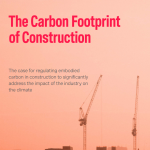
Der Klima-Fußabdruck der Bauindustrie - ACAN 2021
Dieser Bericht des Architects Climate Action Networks (ACAN) vom Februar 2021 zeigt, dass durchschnittlich 75 % der Gesamtemissionen eines Gebäudes bei einer typischen Lebensdauer von 60 Jahren nicht aus der Bewirtschaftung, sondern aus dem sogenannten verkörperten (embodied) Kohlendioxid stammen, das bei der Gewinnung, Lieferung und Herstellung von Rohmaterial, dem Transport, der Errichtung vor Ort, der Sanierungen und Reparaturen, der Entsorgung und dem Abriss am Ende der Lebensdauer eines Gebäudes entsteht. Demgegenüber entfallen nur 25 % auf dem Betrieb (Heizung, Strom und Kühlung).

Landwirtschaft und Lebensmittelerzeugung sind für ein Drittel der globalen anthropogenen Treibhausgasemissionen verantwortlich
Basierend auf einer neuen globalen Datenbank für Lebensmittel-Emissionen (EDGAR-FOOD), ergänzt mit Emissionen aus Landnutzung/Landnutzungsänderungen aus der FAOSTAT-Emissionsdatenbank, zeigt dieser Artikel vom März 2021, dass die Emissionen des Lebensmittelsystems im Jahr 2015 weltweit 18 Gt CO2-Äquivalent pro Jahr betrugen, was 34 % der gesamten Treibhausgas-Emissionen entspricht. Der größte Beitrag (71 %) stammte dabei aus der Landwirtschaft und Landnutzungsänderungen (Entwaldung u.ä.), der Rest aus Aktivitäten in der Lieferkette: Einzelhandel, Transport, Konsum, Kraftstoffherstellung, Abfallwirtschaft, industrielle Prozesse und Verpackung.
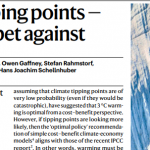
Klima-Kipppunkte - zu riskant, um dagegen zu wetten (Nature, Nov. 2019)
Die wachsende Bedrohung durch abrupte und unumkehrbaren Klima Veränderungen muss die politischen und wirtschaftlichen Emissionen einzuschränken.
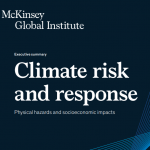
McKinsey Global Institute 2020 - Klimarisiko und Reaktion, Physikalische Gefahren und sozioökonomische Auswirkungen
In diesem Bericht befassen wir uns mit den physikalischen Auswirkungen unseres sich verändernden Klimas. Wir untersuchen die Risiken heute und in den nächsten drei Jahrzehnten und untersuchen Fälle, um die Mechanismen zu verstehen, durch die durch die der physikalische Klimawandel zu einem erhöhten sozioökonomischen Risiko führt. Wir schätzen auch die Wahrscheinlichkeiten und das Ausmaß möglicher Auswirkungen. Unser Ziel ist es, Entscheidungsträger weltweit zu informieren Entscheidungsträger auf der ganzen Welt zu informieren, damit sie die physikalischen Risiken des Klimawandels besser einschätzen, sich an sie anpassen und sie abmildern können. Klimawandels besser einschätzen und mindern können.
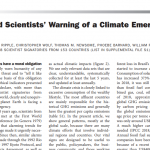
11.528 Wissenschaftler*innen weltweit warnen vor einem Klimanotstand (Nov. 2019)
Wissenschaftler*innen haben eine moralische Verpflichtung die Menschheit eindeutig vor jeder vor einer katastrophalen Bedrohung zu warnen und "es so zu sagen wie es ist". Auf der Grundlage dieser Verpflichtung und der unten dargestellten grafischen Indikatoren unten dargestellten Indikatoren, erklären wir, mit mehr als 11.000 wissenschaftlichen Unterzeichner*innen aus der ganzen Welt, klar und deutlich, dass der Planet Erde vor einem Klimanotstand steht.
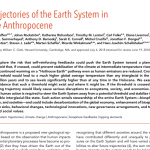
Trajectories of the Earth System in the Anthropocene
We explore the risk that self-reinforcing feedbacks could push the Earth System toward a planetary threshold that, if crossed, could prevent stabilization of the climate at intermediate temperature rises and cause continued warming on a “Hothouse Earth” pathway even as human emissions are reduced.
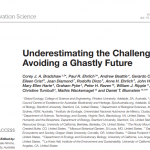
Underestimating the Challenges of Avoiding a Ghastly Future (Frontiers in Conservation Science, Jan. 2021)
We report three major and confronting environmental issues that have received little attention and require urgent action. First, we review the evidence that future environmental conditions will be far more dangerous than currently believed.

WEF - Nature Risk Rising: Why the Crisis Engulfing Nature Matters for Business and the Economy
Although the world’s 7.6 billion people represent only 0.01% of all living things by weight, humanity has already caused the loss of 83% of all wild mammals and half of all plants. The current rate of extinction is tens to hundreds of times higher than the average over the past 10 million years – and it is accelerating.
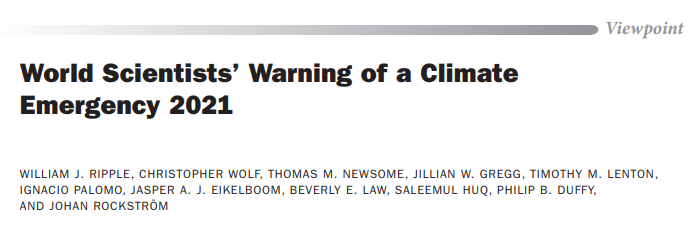
Scientists (again) Call for Action against Climate Change - July 2021
In 2019, Ripple and colleagues warned of untold suffering and declared a climate emergency together with more than 11,000 scientist signatories from 153 countries. In the present article (2021), they investigate recent changes in planetary vital signs since.
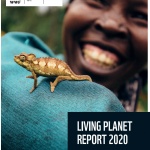
WWF - LIVING PLANET REPORT 2020 - Bending the Curve in Biodiversity Loss
At a time when the world is reeling from the deepest global disruption and health crisis of a lifetime, this year’s Living Planet Report provides unequivocal and alarming evidence that nature is unravelling and that our planet is flashing red warning signs of vital natural systems failure.
The Solution

“How to successfully start and run an "Employee Green Team" by planetgroups
With planetroups we facilitate and support employee driven initiatives for sustainability and climate action. Both from our own experience, and from research and interviews we conducted, we describe nine success factors in this article how employee driven Green Groups can make a substantial difference not only to corporate climate action, but also to making their companies more innovative, customer-centric and successful, and how they can make employees more engaged and purpose driven at their workplace.”
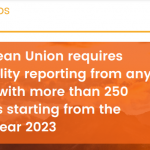
The European Union requires sustainability reporting from any company with more than 250 employees starting from the financial year 2023
Reporting obligations of climate related information will be significantly expanded and enhanced through new EU regulation coming into effect in 2024

Folke, C., Polasky, S., Rockström, J. et al. (2021): Our future in the Anthropocene biosphere.
“Broad coalitions among citizens, businesses, non-profits, and government agencies have the power to transform how we view and act on biosphere stewardship and build Earth resilience." says this great report published for the Nobel Prize Summit 2021 on "Our Planet. Our Future". Among many valuable findings both on the problem and the solutions, it emphasizes the importance of our planetgroups approach: "Transforming towards sustainable futures will require promoting new narratives that resonate, inspire, and provide hope," ... especially if "they offer possible course of action, something that reasonable people can aspire to," ... "fostering diverse forms of novelty and innovations at the micro-level, ... creating 'transformative spaces', allowing for experimentation with new mental models, ideas, and practices."
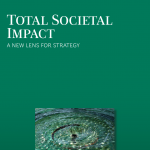
Total Societal Impact - A New Lense for Strategy : a Study by the Boston Consulting Group
Planet Action makes companies more successful! „Top performers in certain ESG (Environment, Social and Governance) topics had margins that were up to 12.4 percentage points higher, all else being equal, than those of the median performers in those topics.“ finds this study by the Boston Consulting Group.“Our analysis provides compelling evidence that companies can develop a robust strategy to make positive contributions to society with confidence that such an approach will increase enterprise value--not diminish it.“

UTOPIA 2048 by Lino Alexander Zeddies
Imagine you wake up in the year 2048, when the great social-ecological transformation will have succeeded, democracy is flourishing, peace and prosperity prevail, and the climate crisis has been successfully averted. What would this new world look like? This beautiful mix of fiction and documentary does not only show us what the world could be like if we dared to rebuild it that way. It also outlines how we got there, and what factors will have played a role to successfully master the transition.
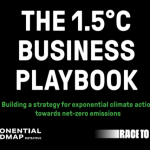
THE 1.5°C BUSINESS PLAYBOOK
This playbook by the Exponential Roadmap Initiative is developed for companies and organisations of all sizes that want to align with the 1.5°C and net-zero ambition. It contains solid guidelines for companies of all sizes to set targets, strategy and actions. It is made to prepare businesses for the fastest economic transition in history – and help them drive it.

Rethinking Climate Action - New perspectives and the opportunity for a fresh start
In this a bit longer piece planetgroups founder Tim Riedel describes his own journey to becoming a "Planet Activist", and how reviewing 8 perspectives on Climate Change has helped him to find a) inner peace, and b) new approaches to the topic. These perspectives are Science, Fear, Solutions, Apocalypse, Gaia, Ideology, the Business Case, and Communication.
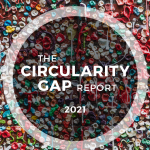
CIRCLE ECONOMY PRESENTS: THE CIRCULARITY GAP REPORT 2021
Enacted globally, a circular economy can close the Emissions Gap. This study shows that combining the twin agendas of circular economy and climate mitigation gets us on a path to a well below 2-degree world by 2032. The current pledges bring us over 15% of the way; the circular economy delivers the other 85%. Our current economy is only 8.6% circular, leaving a massive Circularity Gap. The good news is that we only need to close the Gap by a further 8.4%—or roughly double the current global figure of 8.6%—to get there.
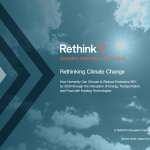
Rethinking Climate Change: How Humanity Can Choose to Reduce Emissions 90% by 2035 through the Disruption of Energy, Transportation, and Food with Existing Technologies.
In this report by the thinktank RethinkX, the authors show that with the right societal choices disruptions in the three areas Energy, Transportation and Food alone can eliminate the overwhelming majority of greenhouse gas (GHG) emissions worldwide within 15 years, and that market forces can be leveraged to do the bulk of the mitigation work because the technologies required are either already commercially available and competitive today, or can be deployed to market before 2025.
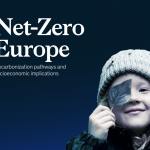
McKinsey and Company - Net-Zero Europe - Decarbonization pathways and socioeconomic implications
Europe can reach net-zero emissions at net-zero cost. Reducing GHG emissions would raise the cost of doing business in some sectors; savings in others would make up the difference. If these costs and savings were passed along to consumers, the average cost of living would decline slightly for low- and middle-income households. The transition would yield a net gain of 5 million jobs. Reaching net-zero emissions would create 11 million jobs and eliminate 6 million jobs through 2050. Up to 18 million people could need training and transition support. Sectors would need to reduce emissions in parallel and reach net-zero in sequence. The power sector would reach net-zero emissions first, in the mid-2040s, because most of the necessary technology is available now. Transport would approach its targetin 2045, followed by buildings in the late 2040s, industry in 2050, and then agriculture. More than half the emissions reductions could be achieved with mature and early-adoption technologies.
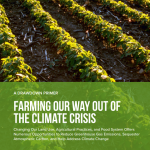
FARMING OUR WAY OUT OF THE CLIMATE CRISIS
When we think of climate change and greenhouse gas emissions, we usually envision power plants, factories, cars, and smokestacks — not farms and ranches.

XaaS Report - Everything as a service
To reverse the climate and biodiversity crises and build a climate neutral economy by 2050, we must accelerate the decoupling of our economic growth from emissions and resource use. A simple replacement of fossil-based with bio-based will not be enough. We need innovative circular business models that are increasingly service-oriented and drastically reduce our dependency on primary resource extraction. The Everything-as-a-Service report provides powerful and much-needed evidence on how such models work, and offers clear guidance to have them succeed on the ground.“

"The Great Unraveling": Navigating the Polycrisis of Environmental and Social Breakdown
Die zentrale These dieser umfassenden und systemischen Analyse ist, dass wir als Menscheit in der "Polykrise" in eine Zeit eingetreten sind, die manche als the "Great Unraveling" (das große "Entwirren", oder auch "Auflösen") bezeichnen - eine Zeit der Konsequenzen aus rund 200 Jahren des "über unsere Verhältnisse Lebens". Das große "Unraveling" hat begonnen, und es fordert uns heraus, uns mit der Aussicht auf eine weitaus schwierigere Zukunft auseinanderzusetzen, die von sich gegenseitig verschärfenden Krisen - einige akut, andere chronisch - geprägt ist. Die Analyse zeigt auf, was wir trotzdem noch tun können, jede*r Einzelne, in unseren Familien, Wohnorten und Netzwerken, und als Gesellschaft.
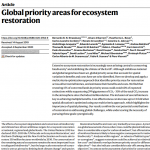
Global priority areas for ecosystem restoration
The effects of ecosystem degradation and conversion on biodiversity and climate have driven ambitious targets for ecosystem restoration at national, regional and global levels.
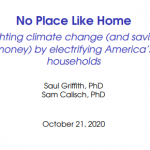
No Place Like Home - Fighting climate change (and saving money) by electrifying America’s households
We have been told that solving climate change will be hard, complicated, and expensive — and that we’ll need a miracle to do it. None of that need be true. We can fight climate change starting right in our own homes, where decisions about which fuels we use are responsible for ∼42% of our energy–related carbon emissions. But most households can’t do it by themselves.

How can companies — engaging their employees — use their full resources, scale and influence a broader community, to drive climate transformation?
This guide by the renowned source of climate solutions „Project Drawdown“ will help you understand how you can work with your colleagues to go further on saving our planet in your company – and which steps to take.
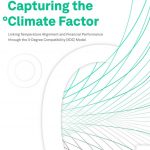
Capturing the Climate Factor - Linking Temperature Alignment and Financial Performance through the X-Degree Compatibility (XDC) Model
This report investigates the emergence of a Climate Factor within the European stock market, its correlation to returns, and whether it can be leveraged to capture market outperformance. On average, this study shows, the most climate aligned companies outperform their least climate aligned competitors by 6.5 times and a far less volatile stock development.
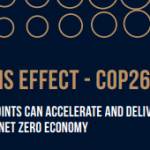
The Paris Effect - How Tipping Points Can Accelerate and Deliver a Prosperous Net Zero Economy
In the years since the Paris Agreement, progress on low-carbon solutions and markets has been much faster than most of us realize. In 2015, low-carbon technologies and business models could rarely compete with incumbent high-carbon solutions. Today in 2021, low-carbon solutions are competitive in sectors representing around 25% of emissions. By 2030, these solutions will have reached mass-market status in sectors representing 90% of global emissions. A stealth revolution is today propelling us towards a zero-carbon, digital future – if we play it right.
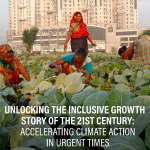
Climate Economy Report - UNLOCKING THE INCLUSIVE GROWTH STORY OF THE 21ST CENTURY:
The Global Commission on the Economy and Climate, and its flagship project the New Climate Economy, were set up to help governments, businesses and society make better-informed decisions on how to achieve economic prosperity and development while also addressing climate change
Presentations

Planetgroups Presentation
Our presentation about planetgroups; our mission, our benefits, and how you can get involved or start a planetgroup.


“Climate Leadership for Employees” – 150+ ways to drive sustainability in your company
How can I make a difference for the planet at my workplace? This presentation shows you – job family by job family – what you can do in your company. It’s a lot. Companies are run by employees. So is climate action!
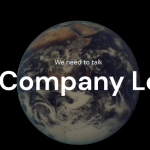

How can we convince our management to take meaningful Planet Action?
This concise presentation, put together by planetgroups.net in cooperation with the “Leaders for Climate Action” (lfca.earth) business community as part of the “Time for Climate Action” – Campaign in April 2021, will help to make the case. “This is the Decade of Action. Customers, employees and investors will cherish the companies who help us save this planet. And they will shun those who don’t. Which side will you be on?”


Buy One - Save One Free: How to build revenue streams which thrive on less consumption instead of more.
Modern Capitalism is built on the idea of selling as much as possible. On a finite planet with limited resources, this is not a model we can blindly follow any longer. But in order to run a profitable business in our current version of capitalism, how can we escape this dilemma and develop viable business models which thrive on less extraction and on regeneration instead? In this presentation you will find 11 options how you can make this work in your company. We do not have to destroy our planet in order to make a living. There are alternatives. We can learn from each other and make this work.
